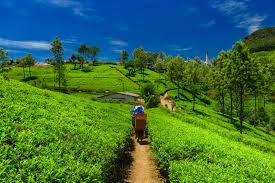In a historic achievement for sustainable agriculture and environmental governance, Sikkim has been officially declared the world’s first fully organic state. All agricultural land in the northeastern Indian state—approximately 76,000 hectares—is now certified organic, with zero usage of chemical fertilizers and synthetic pesticides. This groundbreaking milestone comes after nearly two decades of persistent policy reform, grassroots farmer engagement, and state-backed capacity building.
The recognition, granted by a consortium of international certifying bodies and environmental organizations, affirms Sikkim’s pioneering role in demonstrating how government-led policy, community support, and sustainable farming can coexist to create an ecologically resilient state.
The Journey Towards Organic: A Two-Decade Transformation
The foundation for Sikkim’s organic revolution was laid in 2003 with the launch of the Sikkim Organic Mission, a state initiative aimed at transforming conventional agricultural practices. By 2010, the state government had officially banned the sale and use of synthetic inputs including fertilizers, pesticides, and herbicides. The focus shifted to:
- Training over 66,000 farmers in organic methods
- Establishing decentralized organic certification systems
- Creating supply chains for organic produce
- Providing subsidies for compost units, green manure, and bio-pesticides
The mission was backed by progressive political will and administrative commitment that ensured alignment across departments—from agriculture and horticulture to health and education.
ALSO READ: WAVES Summit 2025: PM Modi Calls It a Wave of Culture and Connection
Global Recognition and Impact
Sikkim’s achievement has garnered praise from multiple international organizations including the Food and Agriculture Organization (FAO), World Future Council, and IFOAM – Organics International. In 2018, the state was awarded the Future Policy Gold Award for its agroecological leadership. Experts believe Sikkim’s zero-pesticide model is not only vital for climate resilience but also a template for global sustainable agriculture.
According to government data, the elimination of chemical inputs has led to:
- Improved soil fertility and biodiversity
- Significant reduction in water pollution
- Better public health indicators in rural areas
- Rising interest in organic tourism and eco-branding
Setting an Example for India and Beyond
Sikkim’s success has sparked similar organic policy efforts in states like Kerala, Mizoram, and Uttarakhand. At the national level, India is now considering an expansion of Paramparagat Krishi Vikas Yojana (PKVY) and Mission Organic Value Chain Development based on Sikkim’s model.
With a focus on long-term environmental sustainability and food safety, Sikkim is now positioning itself as a hub for organic exports, agritourism, and green entrepreneurship. The state’s commitment is also aligned with India’s goals under the UN Sustainable Development Goals (SDGs) and the Paris Climate Agreement.


